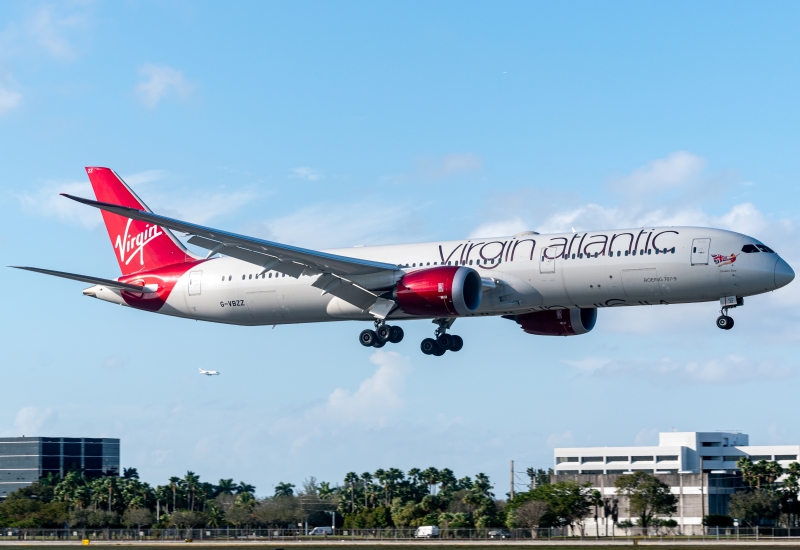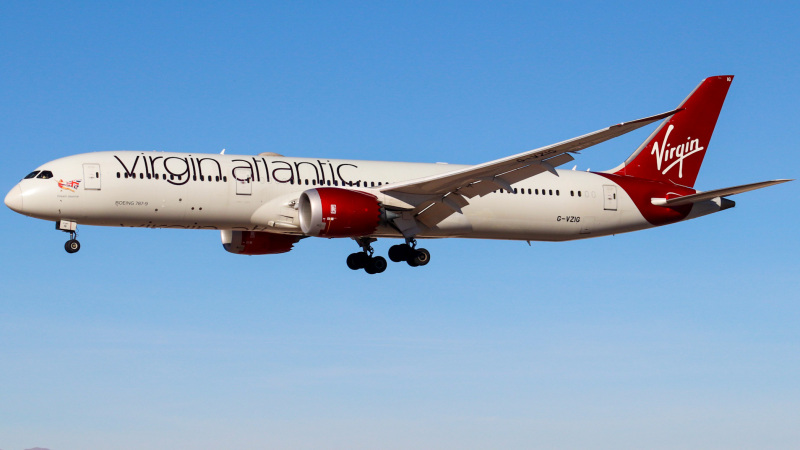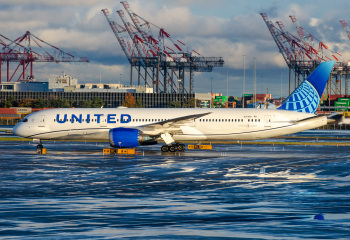The conversation about aviation and sustainability has recently revolved around sustainable aviation fuel (SAF). Some believe that complex chemical reactions will expand their capabilities, while others believe that excess biofuels may lead to their growth. However, one company has been very progressive in its research of SAFs and has applied its functionality to a cross-Atlantic flight. In late 2023, Virgin Atlantic flew Flight100 from London Heathrow Airport (LHR) to John F. Kennedy Airport (JFK) on a fuel based out of 100% sustainable fuels. Even founder Richard Branson was on board and spoke positively about the future of SAF with the company and industry.

Virgin Atlantic and Branson, as an individual, have always marketed themselves as pushing the ideas of what is possible and what is impossible. From Branson, “The world will always assume something can’t be done… until you do it”. Flight100 was the first commercial flight to go across the ocean on SAF, completing the journey in a Boeing 787, using Rolls-Royce Trent 1000 engines. As part of the press release, the company emphasizes that using fully electric commercial airplanes or the elusive hydrogen-based aircraft is still decades from feasibility; SAF-based aircraft are much closer in reality.
The reported fuel used for Flight 100 was a dual-blend SAF. 88% of the mix was HEFA (Hydro-processed Esters and Fatty Acids), while the remaining 12% was SAK (Synthetic Aromatic Kerosene). Both HEFA and SAK are made from waste materials, including uses of waste fats, plant sugars, and other oils and proteins. It is common in SAF research to use blends of multiple synthetic materials, as research is still very experimental in finding out which materials work best.

SAF use by Virgin Atlantic is not just a trend but a step in the sustainability efforts of the entire airline community. In the United Kingdom, the industry is expected to have at least 10% SAF use by 2030 and a Net Zero carbon emissions goal by 2050. Different countries have had different approaches to reducing carbon emissions, with the UK passing harsher regulations and countries like Germany shifting domestic industries away from aircraft operational uses.
Flight100 is the longest commercial aircraft using SAF, but more are expected to launch in 2024. Outside of traditional aircraft, rockets and missile design teams are exploring using SAF on medium- to long-range projectiles. Companies such as Northrup Grumman have experimented with their use and spoken positively about biofuel use in orbital rocket launch attempts. The Northrup Grumman SAF used is POP-FAME (polycyclopropanated fatty acid methyl ester), which contains a similar blend to the SAF used by Virgin Atlantic on Flight100. Although all aerospace companies will have their own priorities when developing alternative fuels, working together and expanding research conducted by other companies can certainly aid the industry and push innovation further.
The World's Top 5 Most Breathtaking Airport Designs » ANALYSIS: Some Pacific Airports Could be Underwater Sooner Than We Think » Easter Island: The World's Loneliest Airport? »
Comments (0)
Add Your Comment
SHARE
TAGS
STORIES Sustainability Virgin Atlantic Richard Branson Innovation SAF Sustainable Aviation Fuel Net Zero Future Sustainable AviationRECENTLY PUBLISHED
 Easter Island: The World's Loneliest Airport?
While most places are generally accessible, some are so remote and desolate that they can only be reached by air or sea. This is the case with Easter Island, a Chilean territory in the middle of the South Pacific Ocean.
INFORMATIONAL
READ MORE »
Easter Island: The World's Loneliest Airport?
While most places are generally accessible, some are so remote and desolate that they can only be reached by air or sea. This is the case with Easter Island, a Chilean territory in the middle of the South Pacific Ocean.
INFORMATIONAL
READ MORE »
 The Impact of Automation and Artificial Intelligence on the Future of Aerospace Education
As with most industries, the aerospace industry is at a crossroads with artificial intelligence and its future role in the important industry.
INFORMATIONAL
READ MORE »
The Impact of Automation and Artificial Intelligence on the Future of Aerospace Education
As with most industries, the aerospace industry is at a crossroads with artificial intelligence and its future role in the important industry.
INFORMATIONAL
READ MORE »
 ANALYSIS: Some Pacific Airports Could be Underwater Sooner Than We Think
As some nations shrink into the sea, aviation remains important to keeping the economy and tourism industries alive.
INFORMATIONAL
READ MORE »
ANALYSIS: Some Pacific Airports Could be Underwater Sooner Than We Think
As some nations shrink into the sea, aviation remains important to keeping the economy and tourism industries alive.
INFORMATIONAL
READ MORE »





